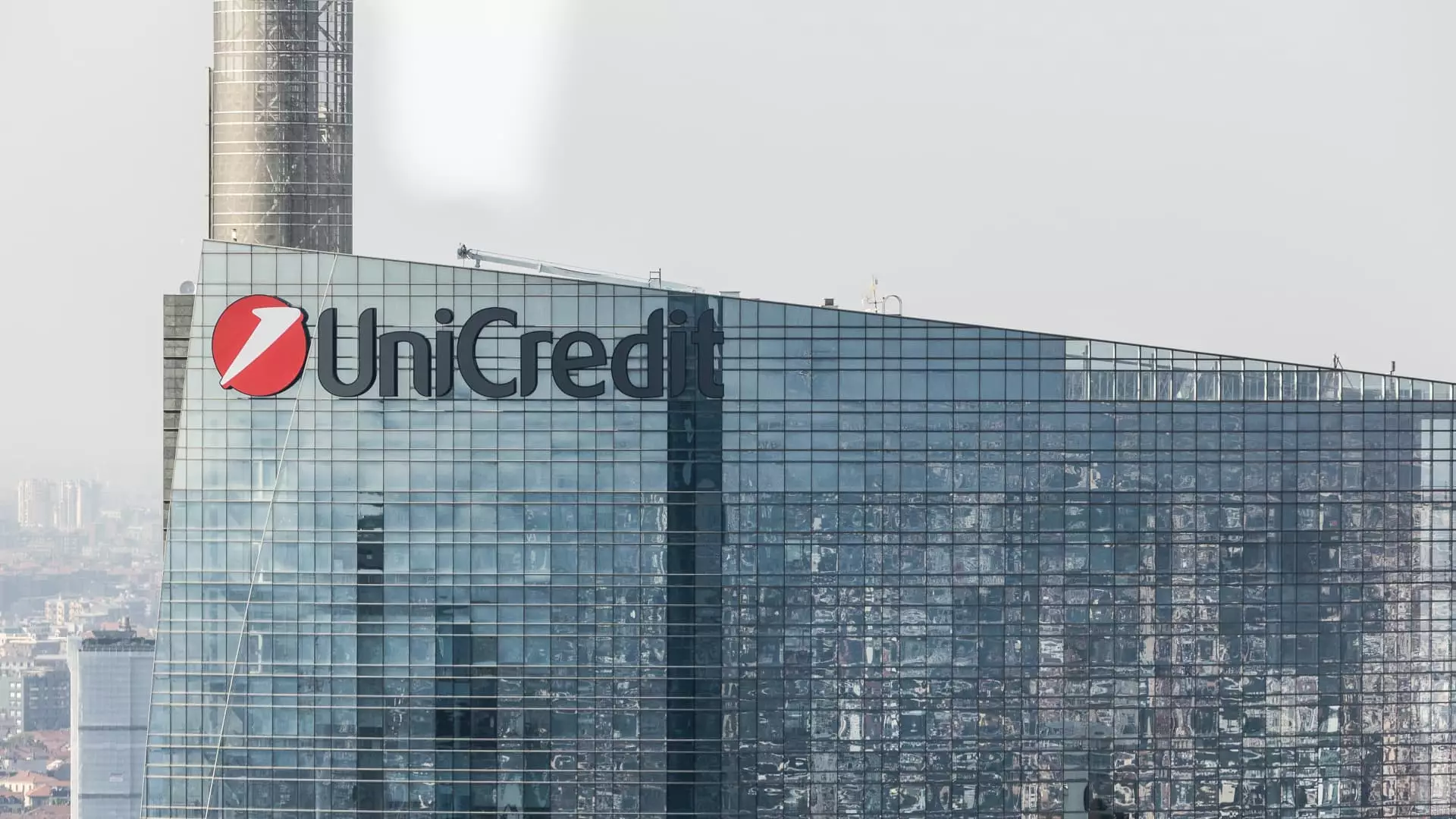In a significant development within the European banking landscape, Italy’s UniCredit announced a strategic increase in its stake in the German lender Commerzbank, boosting its ownership potential to an impressive 28%. This decision is primarily facilitated through derivative instruments, which have allowed UniCredit to elevate its previous shareholdings from 21% to a more robust positioning. The bank revealed that its current ownership structure includes a direct stake of 9.5% combined with around 18.5% acquired through derivatives. This move reflects UniCredit’s pursuit of deeper engagement with Commerzbank while intensifying the ongoing market speculation regarding a potential buyout.
UniCredit’s management, led by CEO Andrea Orcel, emphasizes that this acquisition strategy is indicative of a broader vision to unlock the intrinsic values of Commerzbank. The bank declared its belief in the German market’s potential, stating that a strong banking sector is crucial for bolstering Germany’s economic framework. The lender positions this stake increase as an investment endeavor, not directly impacting its simultaneous 10-billion-euro bid for Banco BPM. This bifurcation of strategies underlines UniCredit’s methodical approach to expand its footprint in both Germany and Italy’s banking sectors.
Furthermore, the move may signal UniCredit’s determination to consolidate its competitive stance. Analysts speculate that Orcel may eventually refine his bid for Banco BPM, possibly introducing a cash element to enhance the attractiveness of the proposal. Such developments are pivotal as the Italian banking system experiences a significant shift, particularly in light of the competition posed by major players like Intesa Sanpaolo.
Despite the ambitious plans outlined by UniCredit, obstacles remain, notably concerning regulatory approvals and market reception. The bank has formally sought approval from the European Central Bank to elevate its stake to nearly 30%, an endeavor complicated by the German government’s historical reluctance toward foreign takeovers, particularly after its previous intervention during the financial crisis that saw a government bailout of Commerzbank. The German administration still holds a 12% stake in the bank following a partial exit in September, underscoring the complexities involved in potential tie-ups.
The market’s reaction to UniCredit’s maneuvers has been cautiously optimistic. Following the announcement, shares of UniCredit experienced a modest increase of 1.1%, while Commerzbank’s stock surged by 3.1%, indicative of investor sentiment leaning towards a favorable view of the proposed strategic partnership.
Looking forward, the situation represents both opportunity and challenges. While the synergies between the two banks hold considerable promise—particularly in capital markets and trade finance—the increasing stakes also add pressure on UniCredit to articulate a clear and compelling strategy. The upcoming strategy update from Commerzbank, expected on February 13, will be a critical moment, potentially reshaping the narrative surrounding this emerging partnership and offering further insights into the future trajectory of both institutions. As this banking saga unfolds, the implications for stakeholders in the European banking landscape will be profound.

